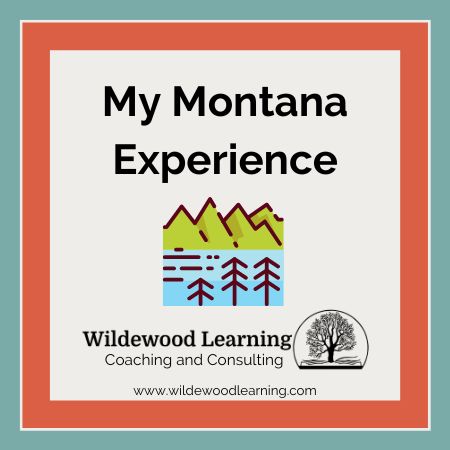My Montana Experience
My young adult son was in middle school and had a challenging time. Instead of talking to me about what was happening in school, he became quiet, anxious, and withdrawn. Being bullied led him to lash out at others, and his reaction made him spend time in detention.
I attended a 3 hour ACEs presentation for work during this same time. As I sat and listened to the presenter talk about the long-term effects of traumatic childhood experiences on health, it all clicked with how my son was reacting at school. He and his three siblings all had various degrees of trauma. At that moment, I felt relief, awareness, and sadness. I also felt like my children’s future was doomed. I thought,” This can’t be it! I had to find out more!”
My drive to learn more brought me to become a certified ACEs presenter. I created a video about “Why You Need to Know About Adverse Childhood Experiences” and gave workshops for educators and parents. I still wasn’t satisfied with how the ACEs story ended. I needed to know more. There needed to be more hope for my children and others.
I have found it!
The big skies of Montana were looming over me as I attended the Montana Summer Insitute at the end of June. The Montana Institute, directed by Jeff Linkenbach, works with community coalitions, schools, and organizations to develop positive community norms.
The Montana Institute was a conference focused on the positive! After the week-long conference at Big Sky Resort, I walked away feeling recharged to go out and make a change in my community!
Here are my biggest takeaways from the conference:
- YES! We now have the research that Positive Childhood Experiences (PCEs) mitigate Adverse Childhood experiences (ACEs). This one was a no-brainer to me; however, the research presented at the conference backed up the hypothesis.
- The 7 PCEs researched are NOT big trips with your family or being in a bunch of extracurricular activities. The experiences are relationship-based with family, friends, and other adults in the community and are free!
- Most of us have one or more of the seven experiences in our childhood. When you have these experiences, there is an increased correlation between health outcomes and PCEs.
Every weekday, I receive a fantastic resource in my email called the PACE CONNECTION. This resource highlights the work done to bring Positive and Adverse Childhood Experiences to all aspects of life. Health, education, social justice, the justice system, and policy-making are just a few topics on this social networking site.
Looking for what is right with a person, the positive aspects and relationships can have a huge and long-lasting impact on another person’s life. When I first joined the online resource, the networking community was called the ACE Connection. With the science of Positive Childhood Experience, the P=Positive was added to the name. The research of identifying the seven experiences has influenced the network of communities interested in the research to change its name from the ACE Connection to the PACE Connection (Positive and Adverse Childhood Experiences).
What is the positive message you are passing on to others?
Recently read an article focused on a story about a teen who places encouraging messages on sticky notes for others around his school.
I loved the idea of placing positive messages in obscure places. What would happen if you checked out a library book, and on page 107, there was an uplifting message. Or you went to the park; there was a positive note on the bench.
You can use technology to make someone’s day. I challenge you to take out your phone or open your email. Send a positive message or email to someone right now. It just takes a minute; however, it can have a huge impact!!
My attitude from attending my first ACEs presentation has come a long way. I am searching for more resources and research to help establish the protective factors to mitigate ACEs. The fact to keep in mind is that ACEs are preventable. We can all work on preventing ACEs and expanding opportunities for our families, schools, and communities for Positive Childhood Experiences (PCEs).
My experience at the Montana Institute validates my work in cultivating trauma-sensitive strength-based schools and organizations plus, it was fantastic to be in a conference room full of people looking for the positive! My Montana experience was a great way to kick off my summer learning.

